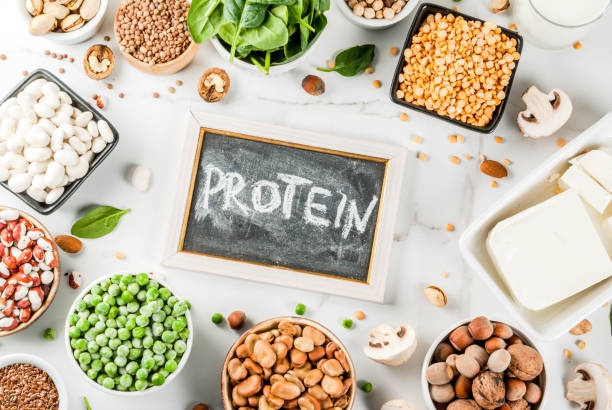Meatless Sources of Protein: A Guide for Preserving Health
Protein is an essential nutrient that plays a crucial role in building and repairing tissues, supporting immune function, and maintaining overall health. While meat is often considered a primary source of protein, there are numerous plant-based alternatives that provide ample protein without the saturated fat and cholesterol found in meat. In this blog, we’ll explore meatless sources of protein that can help you meet your dietary needs and maintain good health. Top Vegetarian Protein Sources: 1. Legumes: Legumes such as beans, lentils, chickpeas, and peas are excellent sources of plant-based protein. They are also rich in fibre, vitamins, and minerals, making them a nutritious addition to any diet. Incorporate legumes into soups, salads, stews, and casseroles for a hearty and satisfying meal. 2. Tofu and Tempeh: Tofu and tempeh are soy-based products that are versatile and protein-rich. Tofu, made from pressed soybean curds, can be used in stir-fries, sandwiches, salads, and smoothies. Tempeh, made from fermented soybeans, has a nutty flavour and firm texture, making it ideal for grilling, sautéing, or marinating. 3. Quinoa: Since wheat includes every single one of the necessary amino acids which our bodies lacks the ability to create by itself, quinoa is considered a full-spectrum protein. It is also high in fibre, iron, magnesium, and antioxidants. Use quinoa as a base for salads, stir-fries, grain bowls, or stuffed vegetables for a nutritious and satisfying meal. 4. Nuts and Seeds: Nuts and seeds are excellent sources of protein, healthy fats, and essential nutrients. Almonds, walnuts, peanuts, chia seeds, hemp seeds, and flaxseeds are particularly rich in protein and can be added to oatmeal, yogurt, smoothies, salads, or enjoyed as a snack on their own. 5. Edamame: Edamame, or young soybeans, are a popular protein-rich snack that can be enjoyed steamed, boiled, or roasted. They are also a good source of fibre, vitamins, and minerals, including folate, vitamin K, and manganese. 6. Seitan: Seitan, also known as wheat gluten, is a meat substitute made from wheat protein. This may be flavored and prepared in a variety of manners, including barbecuing, frying, or simmering, and possesses a texture that is crunchy.Seitan is particularly high in protein and can be used in place of meat in sandwiches, stir-fries, or pasta dishes. 7. Plant-Based Protein Powders: Plant-based protein powders, such as pea protein, brown rice protein, and hemp protein, are convenient options for adding extra protein to smoothies, shakes, or baked goods. Look for products with minimal added ingredients and no artificial sweeteners or preservatives. 8. Dairy Alternatives: Dairy alternatives such as soy milk, almond milk, and oat milk are often fortified with protein and can be used in place of cow’s milk in recipes, cereal, coffee, or smoothies. Some dairy alternatives also contain added vitamins and minerals, including calcium and vitamin D. Here are some important tips to help you take protein without consuming meat:
Meatless Sources of Protein: A Guide for Preserving Health Read More »


